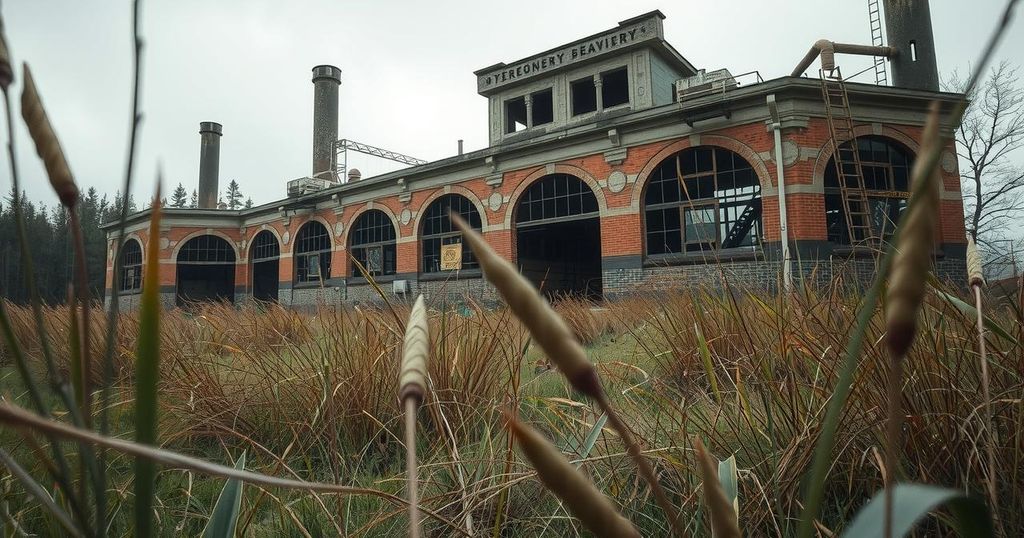Congo Conflict Forces Closure of Heineken Brewery, Devastates Local Economy
The closure of the Heineken-owned Bralima brewery in Bukavu, Congo, has led to severe economic challenges, including rising prices and business closures. The M23 rebels’ conflict, allegedly supported by Rwanda, has left local markets crippled, affecting access to essential goods and services. Regional water supplies are also at risk due to the brewery’s shutdown, as reliance on Bralima significantly contributes to revenue for local utilities.
The closure of the Heineken-owned Bralima brewery in Bukavu, Democratic Republic of Congo, has severely impacted local businesses like that of Adolphe Amani, who anticipates shutting down his bar soon due to diminishing supplies and mounting expenses. Amani lamented, “We cannot pay the rent, electricity, water or our taxes,” highlighting the economic despair following the M23 rebels’ takeover of the city amid ongoing conflict.
The M23 rebels, allegedly backed by Rwandan forces, have executed their most effective offensive in years, capturing eastern Congo’s strategic city of Goma and subsequently advancing southward to Bukavu. The situation has led to widespread denunciations and sanctions against Rwanda while creating severe economic consequences for residents and businesses in affected regions, with skyrocketing prices for food and basic necessities.
The turmoil has affected various sectors, with farmers unable to access their fields and banks shuttered, leading to a cash supply crisis. “The economy is blocked and paralyzed,” stated Bukavu resident Merci Kalimbiro, as businesses struggle to adapt to the increasing pressure of the conflict.
Heineken’s operations have not been spared, as their brewery has suffered looting and damage. A spokesperson noted that it may take time to assess the extent of these damages. With approximately 14% of Heineken’s revenue deriving from Africa, the disruption of operations in vital cities such as Bukavu threatens both employment and economic stability in the region, where Bralima provides jobs for around 1,000 individuals.
According to REGIDESO, the state water utility in South Kivu province, the loss of Bralima’s operations poses a risk to its revenue and, consequently, the supply of potable water due to a reliance on chemical inputs. Jean de Dieu Kwibuka Babwine from REGIDESO expressed grave concerns, stressing that a halt in operations would lead to a humanitarian crisis.
In response to the brewery’s cessation, some local bar owners have turned to importing beer from Burundi or Rwanda, though Amani remains resolute in his opposition to Rwandan products, stating, “I cannot consume products that come from Rwanda. They are our enemy.”
The overall situation indicates that unless hostilities cease and peace efforts progress, local businesses will continue to suffer gravely from the ongoing conflict, with far-reaching implications on the Congo’s economy and water supply.
In conclusion, the closure of the Heineken-owned Bralima brewery due to escalating conflict in eastern Congo has sparked a significant economic downturn, affecting local businesses and essential services. The challenges faced by bar owners like Adolphe Amani exemplify a broader crisis impacting the region. Without a resolution to the conflict, the economic repercussions will likely intensify, leading to further hardship for residents and businesses alike.
Original Source: www.usnews.com




Post Comment